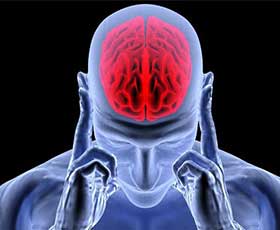Stress & Depression
The impact of stress and depression is well known. What is not less well known and appreciated is the tremendous but often ignored, the invisible role that the community have within the care and the impact of this to the respective community.
The presence of stress and depression can have significant consequences for the family members and this is why the Reason To Hope holistic approach to treatment and management has been successful in the strengthening of an appropriate coping mechanism

Our approach to mental wellness is through a well structured approach ‘Reason to Hope’ model.
This is a model training program applied in all our programs aimed at “strengthening Families and Communities through Empowerment”.
This approach is community based. This training provides information to individuals, groups, families, organizations on how best to handle their lives changed by impact of mental Illness, and teaches the skills to carers (guardians and employers) on how to care for their family members and themselves.
Impacts Of Depression
1. Reduced or no production of the person
2. Not able to form relationships at the family and workplace
3. Poor problem solving and decision making skills
4. Redundancy in their lives/work
5. Unexplained illnesses leading to loss of productive work hours
6. Unkempt persons
NO HEALTH WITHOUT MENTAL HEALTH!
25% to 30% Visitors To Health Clinics In Kenya Have Depression
DANGER SIGNALS OF AN UNHEALTHY MENTAL STATE
- Prolonged lack of appetite, lack of sleep, loss of interest and feeling that life is not worth living,
- Shifting bodily pains including headaches and heaviness of the head made worse by everyday stresses of living,
- Inability to spend one’s time, money, and other resources appropriately,
- Over suspiciousness and mistrust of others around you,
- Neglecting expected personal, family, and various social responsibilities.
- Failed or sharp drop in educational performance with any explanation.
- Reduced or no production at all (unable to engage in any meaningful economic activity).
- Excessive intake of alcohol, other drugs and substances which interfere with one’s health, family and society.
- Bizarre symptoms like talking to oneself, hearing voices, confusion and restlessness,
SOME POSSIBLE CAUSES
- Not all causes are known but it is a product of damage in the brain caused by many factors
- Prolonged fear or frustration of failure of unfulfilled goals/expectations/illness
- Low esteem and overwhelming and or prolonged sadness/trauma
- Prolonged anger for more than 12 hours without seeking restoration/reconciliation
- Alcohol and substance abuses.
IF SYMPTOMS PERSIST, SEEK PROFESSIONAL ADVICE
Most Common Types
Clinical Depression ,
A mental health disorder characterised by persistently depressed mood or loss of interest in activities, causing significant impairment in daily life.
Anxiety Disorder ,
A mental health disorder characterised by feelings of worry, anxiety or fear that are strong enough to interfere with one's daily activities.
Bipolar Disorder ,
A disorder associated with episodes of mood swings ranging from depressive lows to manic highs.
Dementia ,
A group of thinking and social symptoms that interferes with daily functioning.
Attention - Deficit/Hyperactivity disorder ,
A chronic condition including attention difficulty, hyperactivity and impulsiveness.
Schizophrenia ,
A disorder that affects a person's ability to think, feel and behave clearly.
Obsessive Compulsive disorder ,
Excessive thoughts (obsessions) that lead to repetitive behaviours (compulsions).
Autism ,
A serious developmental disorder that impairs the ability to communicate and interact.
Post Traumatic Stress disorder ,
A disorder characterised by failure to recover afterexperiencing or witnessing a terrifying event.
Alcohol and Substance Abuse ,
Sexuality ,

Leave a Comment